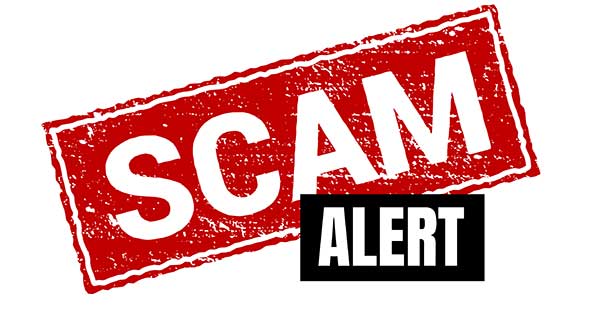News January 23, 2024
Distributor Reports Another Scam Attempt By Crook Posing As a University Buyer
The Ohio-based firm spotted the swindle for the scam it was and is reminding industry companies to stay vigilant in 2024 as the long-running con continues.
The year is new, but the scam certainly isn’t.
As 2024 has gotten underway, con artists have continued to target promotional products distributors with a particular scheme that involves posing as buyers for colleges and universities.
The aim is to trick the merch pros into providing what often amounts to five or six figures’ worth of products for which the crooks will never pay. The goods, if obtained, are then sold on the illegal market.

Hopkins Printing, a printer/distributor based in Columbus, OH, was among the industry firms to be recently targeted by a would-be swindler bent upon advancing such a scam.
In line with the pattern of past attempts pushed on distributors nationwide, the illicit solicitation began with an email from a purported collegiate buyer – this time for the University of Pennsylvania. The “buyer” identified themself as “Dickson Alex.”
“Alex” was requesting that Hopkins Printing submit a bid for providing 5,000 32-oz. double-wall vacuum-insulated water bottles with a one-color imprint logo, as well as 8,000 8GB USB memory sticks with a one-color imprint.
Unlike other versions of this scam that have been subtle and cunning, this approach from the supposed UPenn worker had a number of glaring red flags. Tom Broadbent, a business development pro with Hopkins Printing, was swift to spot them.
For starters, he noticed the email address clearly wasn’t a legit UPenn domain, being “procurement@upenne.education.”
Distributor Warns of Sophisticated $170K Scam Attempt https://t.co/lYZF0p8Yes
— Chris Ruvo (@ChrisR_ASI) October 5, 2023
Also, the wording of the email sounded off, the grammar being strained at points, Broadbent said. For instance, one part read “UPenn would like a bid on products listed below and let know if your organization can supply us between now and February Ending? Kindly review and get back to me as soon as possible.”
Said Broadbent: “I also called the phone number given in the email to see what would happen. It went right into voicemail and did not identify the ‘buyer’ – another sign this was definitely a scam.”
It wasn’t clear if “Dickson Alex” is a real person with any connection to UPenn whose identity was being spoofed by the schemer. In the past, scammers have posed as actual university employees, lending an additional layer of validity to their con.
Michael Pidcock, a real buyer with Ohio University, has unfortunately often had his identity used by con artists that have crept on promo companies. Still, it’s certainly not just Pidcock being victimized: Crooks have pretended to be other real buyers too.
The number of identities of real buyers that scammers are using to try to swindle #promotionalproducts distributors and suppliers may be growing, according to some industry pros.https://t.co/IHj1Mckpl4
— Chris Ruvo (@ChrisR_ASI) October 13, 2023
While Hopkins Printing nipped this attempted swindle in the bud, other promo companies have been duped, especially when the scammers have been craftier in their approaches. Indeed, even seasoned professionals with decades of experience say variations of this scam have been so tricky that they were nearly taken in.
To keep from getting conned, distributors should be leery of seemingly out-of-the-blue requests for bids, especially for large-quantity jobs that involve USB drives and/or drinkware.
As Broadbent did, review the email address to see if it’s legitimate and be suspicious of the wording of emails/online order form submissions. If the “order” starts to progress, watch for other smoke signs of skullduggery: For instance, a request to ship product to an address that seemingly has no connection to the purported end-buyer, such as a warehouse/fulfillment center in a city/state far from the “university” that’s said to be ordering.
Also, requests for terms/desire for no up-front payment is a major tell. Some distributor pros advise that you insist on full payment up front via ACH debit transaction. Tell the buyer that’s how you do business with all new customers. A scammer’s obviously not going to accommodate the request.
